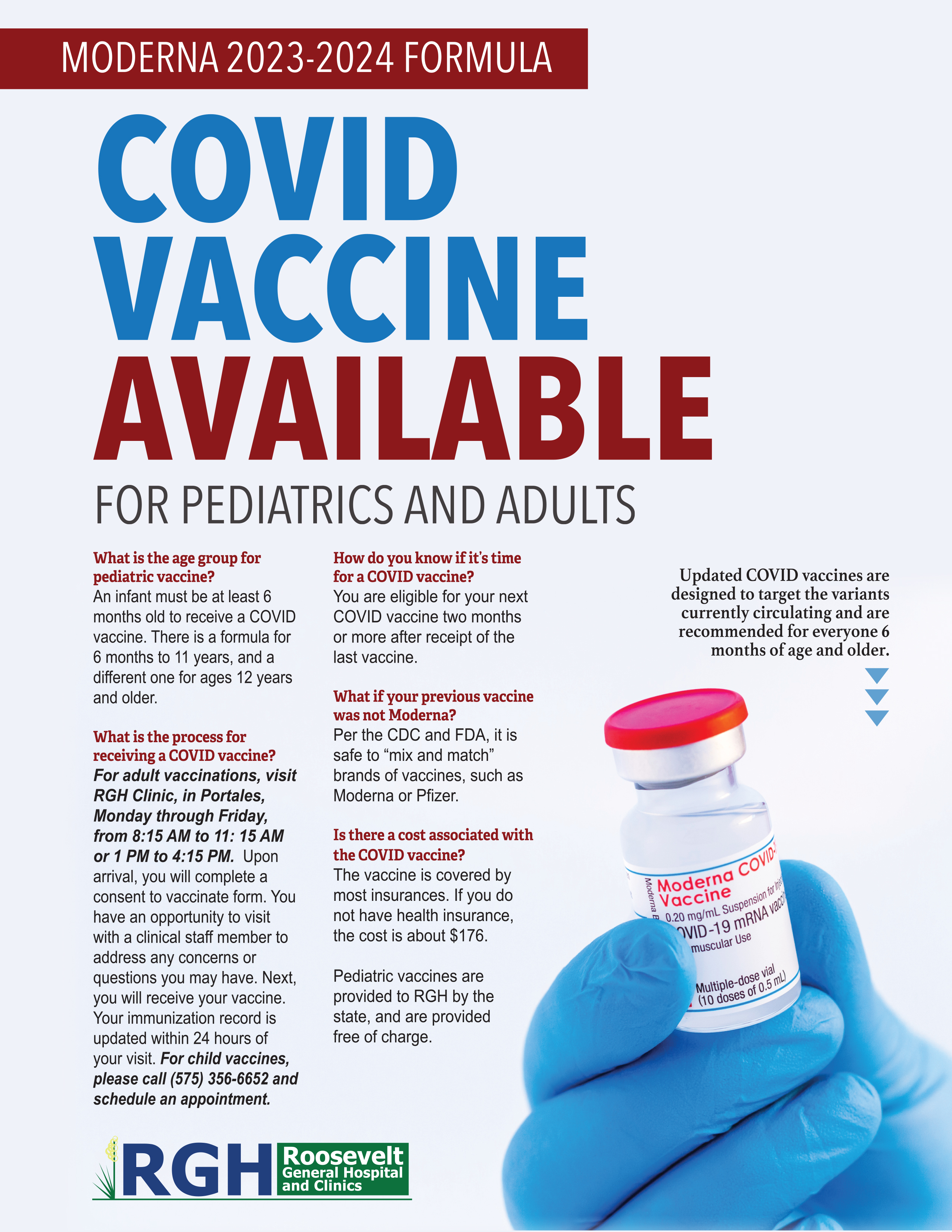The State of New Mexico has a gross receipts tax (GRT) on goods sold within the state. We normally refer to that tax as the sales tax. That amount for Portales is 8.1875%. A portion of that GRT goes to the State (5.125%), a portion to the County (1.5%) and a portion to the City (1.5625%). The State also gives another 1.225% from their portion to the City. That allocation could change at any time. Seventy-three percent (73%) of the City’s revenue in the General Fund is covered through the GRT. The General Fund covers expenses in areas that have little or no way of creating revenue, such as fire department, police department, street department, administration, parks, etc.
Several years ago, the New Mexico Legislature decided to no longer tax certain foods purchased in grocery stores or certain medical expenses.
Eligible foods include, but are not limited to:
- Any food or food product intended for human consumption;
- Seeds and plants to grow foods for personal consumption of households;
- Most staple grocery food items;
- Most cold, prepared foods packaged for home consumption.
Ineligible foods and sundries include, but are not limited to:
- Receipts from the sale of food already exempt or preempted by federal law or exempt or deductible under the New Mexico Gross Receipts and Compensating Tax Act.
- Nonfood items including but not limited to soaps, paper products, cosmetics and household supplies;
- Alcoholic beverages;
- Tobacco and tobacco products;
- Hot foods and hot food products prepared for immediate consumption;
- Any food eaten in the store;
- Pet foods, accessories and medicines;
- Vitamins and over-the-counter medicines;
- Restaurant food;
- Any food purchased at establishments that do not meet the definition of retail food store.
However, the Legislature did acknowledge how difficult this would be for the municipalities who were counting on those taxes to fund their services. Therefore, the State decided to “hold harmless” the municipalities, meaning that the State still passed on the amount of GRT that the City would be losing by not taxing food and medical services. They did that by increasing GRT on all other purchases by one-half percent.
Three years ago the Legislature decided to remove the “hold harmless” clause which means they will no longer send the City the equivalent to the GRT that we were losing by not taxing food and medical services. They did not reinstate the GRT for those services so residents still do not pay those taxes, but the City will lose a great deal of revenue. The State will institute a “claw back”, meaning that over the next 15 years they will take back a portion each year of the revenue they have been sending to the City until they recoup 100% of the tax. By the end of that 15 year period, the City will lose around $900,000. We’re in the third year of “claw back” and so far have lost approximately $156,000 of revenue.
The good news is that the identified food items will still not be taxed at the grocery store, so that won’t affect your household budget. The bad news is it will decrease the City’s budget which will affect the services provided to our residents.
So how does the City cover that loss? The State has allowed the City to increase the local GRT by 3/8 of 1%, which will be about $785,000 over the next 15 years, leaving the general fund down $150,000 from previous funding. We also have two other options, decrease services and look for other revenue streams.
How do we do that? There is no good way. Since I have been mayor (7 years), the City’s employee pool has decreased from about 180 people to about 130. We are as lean as we can be and still provide our customary services. One way to increase revenues is through grants and loans. Both grants and loans can only be used for the specific purposes for which they were funded and cannot just be added to the General Fund to pay for operating expenses. In some very rare cases, grants and loans might ease the burden on the general fund for a short period of time but will not provide long-term relief. Other revenue avenues include property taxes, fees for services and General Obligation bonds.
There was a slim chance this year that the Legislature would decide not to “claw back” funds, so the City Council has not acted on any of the options mentioned above. Now that the Legislative Session and Special Session have concluded, we now know that the “claw back” stays in effect for the time being.
Written by Sharon






























